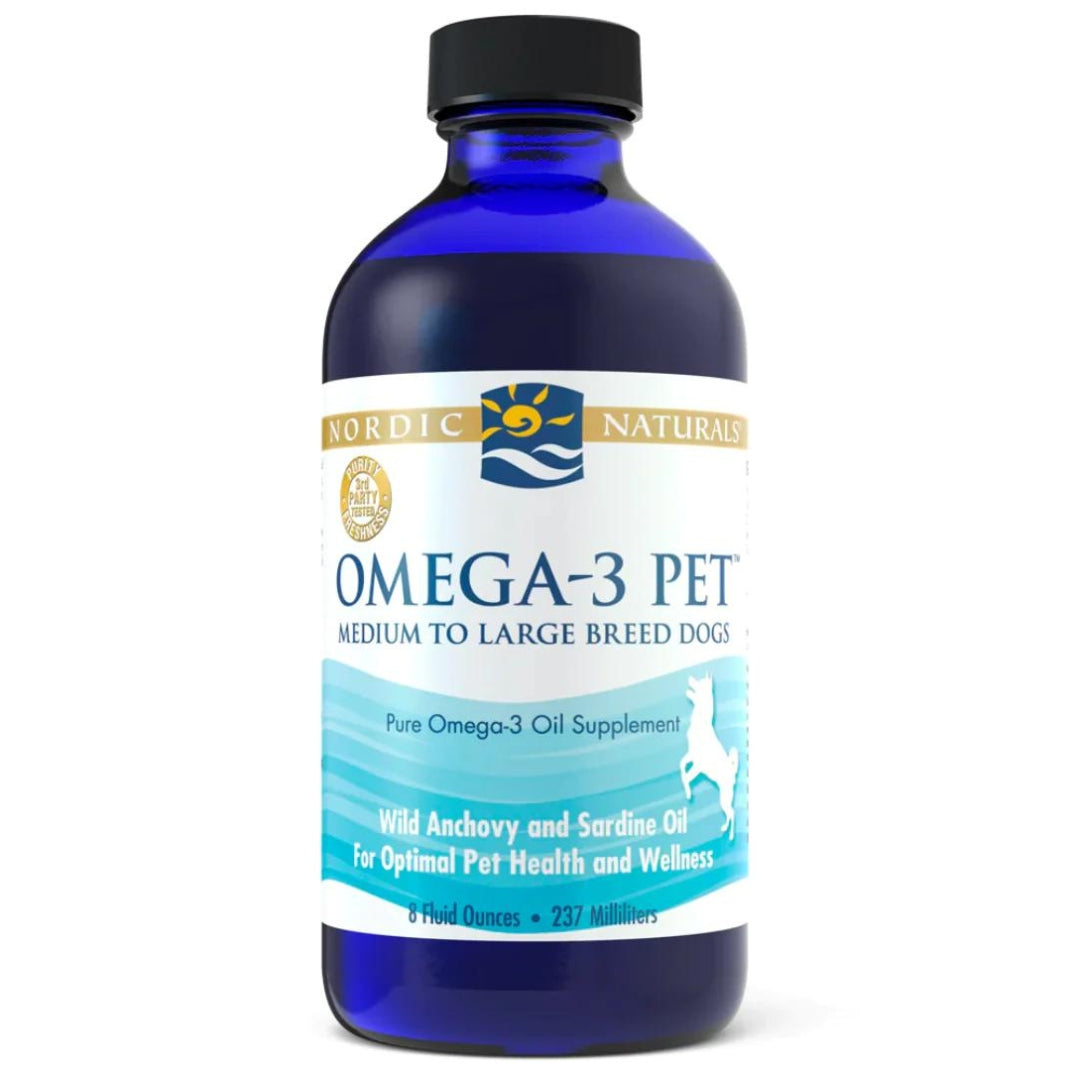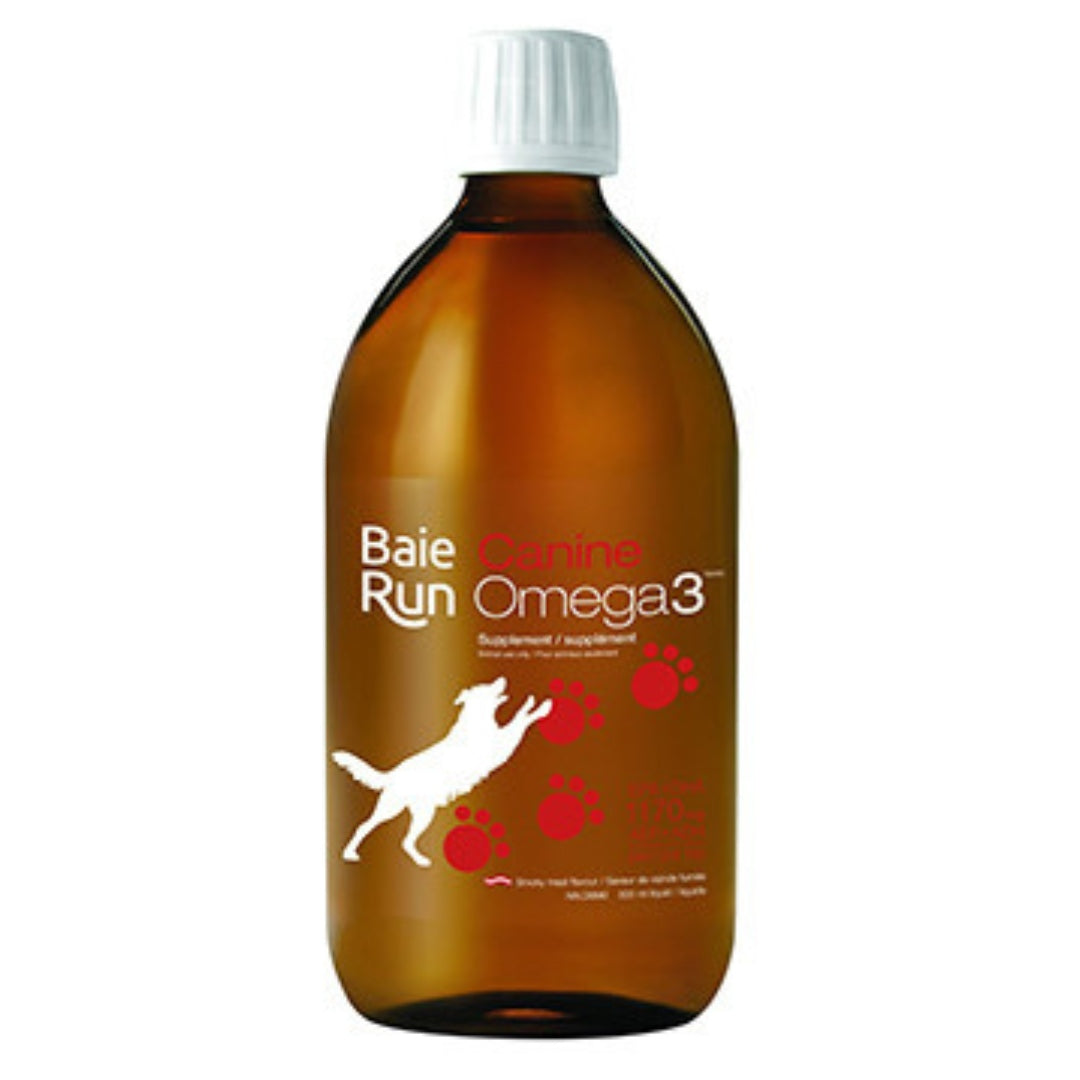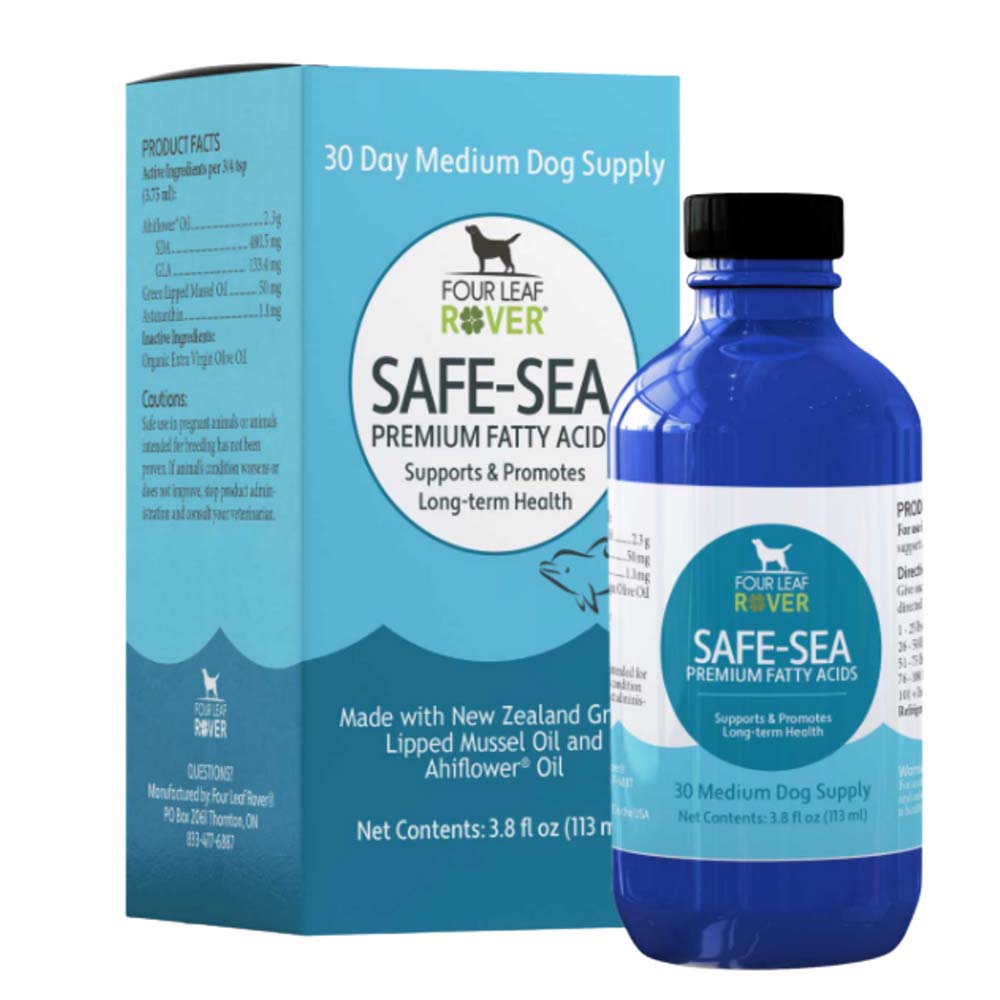
The Importance of Choosing Triglyceride Form Omega Fatty Acids
Omega fatty acids are as essential for dogs as they are for humans. They play a crucial role in maintaining overall health and can have a significant impact on your dog’s quality of life.
When selecting an omega fatty acid supplement for your dog, it’s essential to choose one in its triglyceride form. In this blog post, we’ll explore the significance of selecting triglyceride-form omega fatty acids for your pets.
Understanding Omega Fatty Acids
Omega fatty acids are a type of polyunsaturated fat. They’re classified into three main types: omega-3, omega-6, and omega-9. These fatty acids are considered essential for dogs because their bodies can’t produce them naturally—they must obtain these nutrients from their diet or as supplements.
Omega-3 fatty acids in particular are incredibly beneficial for dogs. The two most important omega-3 fatty acids for canine health are eicosapentaenoic acid (EPA) and docosahexaenoic acid (DHA). These offer a wide range of health benefits, including:
- Anti-Inflammatory Properties: Omega-3s help reduce inflammation, which is beneficial for dogs with conditions like arthritis and allergies.
- Heart Health: Omega-3s can improve heart health by reducing the risk of heart disease and lowering blood pressure.
- Skin and Coat Health: These fatty acids promote healthy skin and a shiny coat, reducing itching and flakiness.
- Brain Development: DHA, in particular, is crucial for brain development in puppies and cognitive function in senior dogs.
- Joint Health: Omega-3s can help alleviate joint pain and improve mobility, making them beneficial for dogs with joint issues.
It’s worth noting that a third form of EFA, phospholipids, is the superior form when it comes to bioavailability, but these supplements are less commonly found and more expensive to purchase due to the complexity of their manufacturing process.
The Triglyceride-Form Advantage
When it comes to supplementing your dog’s diet with omega-3 fatty acids, you’ll often find two forms: triglyceride and ethyl ester. The triglyceride form is the natural and more bioavailable form, making it the better choice:
- Better Absorption: Triglyceride-form omega-3s are easier for your dog’s body to absorb and use. This means your dog will receive more of the benefits with a smaller dose.
- Reduced Risk of Oxidation: Triglyceride-form omega-3s are less prone to oxidation, ensuring that the supplement remains fresh and effective for longer.
- Reduced Risk of Digestive Issues: Some dogs may experience digestive upset when given ethyl ester––––––form omega-3s. Triglyceride-forms are less likely to cause gastrointestinal discomfort.
- Higher Purity: Triglyceride-form supplements often have fewer impurities and contaminants that could be harmful to your dog’s health.
The importance of packaging
The packaging of your EFA might be more important than you realize. Many omega-3 supplements are sold in bottles with pump dispensers for convenience, but this might not be the best choice for maintaining the supplement’s freshness and efficacy.
Exposure to Air
Pump dispensers often allow air to enter the bottle each time you use them. Omega-3 fatty acids are sensitive to oxidation, meaning they can become rancid when exposed to oxygen. Not only can oxidized omega-3s lose their effectiveness, they also can be harmful to your dog’s health.
Decreased Shelf Life
With each pump, the contents of the bottle are exposed to air, accelerating the oxidation process. This can significantly reduce the shelf life of the supplement, meaning you might have to replace it more frequently, leading to additional costs.
Potential Contamination
Pump dispensers can also introduce contaminants into the bottle if not properly cleaned and maintained. This poses a risk of spoilage and contamination, which can be detrimental to your dog’s health.
Inconsistent Dosage
Pump dispensers may not provide consistent doses with each pump, making it difficult to ensure your dog receives the correct amount of omega-3s needed for their specific health requirements.
To preserve the freshness and efficacy of your dog’s omega-3 supplement, it’s advisable to choose products packaged in dark, opaque bottles with airtight seals. These bottles help to protect the contents from light and air, minimizing the risk of oxidation and extending the shelf life of the supplement. Additionally, measuring the dose with a syringe or a designated measuring cup ensures precise and appropriate dosing.
Choosing the right omega fatty acid supplement for your dog is essential for their overall health and well-being. Opting for omega-3s in their natural triglyceride form is the best way to ensure your dog receives the maximum benefits from these essential nutrients. Whether your dog is young or old, active or sedentary, omega-3 fatty acids can support their health in numerous ways, from reducing inflammation and keeping joints lubed to promoting a shiny coat and improving cognitive function.









